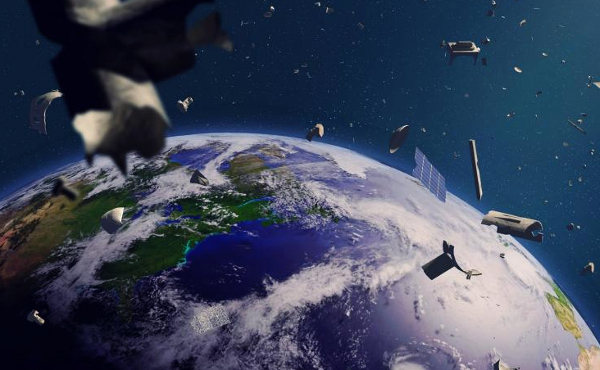Indraprastha Institute of Information Technology (IIIT)-Delhi receives research funding from National Super Computing Mission (NSM) under HPC Applications to work on the project titled ‘Orbit computation of Resident Space Objects for Space Situational Awareness’ for two years. The NSM project has been implemented by the Department of Science and Technology (DST), Government of India in collaboration with the Ministry of Electronics and Information Technology (MeITy) to ensure the country’s leadership in supercomputing.
Various R&D projects have been initiated under this mission across the country to harness the vast supercomputing resources provided under NSM, to build capabilities to tackle problems that are currently out of reach either for want of newer physics or newer algorithms, to develop popular application packages at Peta and exascale level along with other objectives.
Indraprastha Institute of Information Technology (IIIT)-Delhi receives research funding from National Super Computing Mission (NSM) under HPC Applications to work on the project titled ‘Orbit computation of Resident Space Objects for Space Situational Awareness’ for two years. The NSM project has been implemented by the Department of Science and Technology (DST), Government of India in collaboration with the Ministry of Electronics and Information Technology (MeITy) to ensure the country’s leadership in supercomputing.
The project proposed by IIIT-Delhi will be headed by the institute’s faculty, Dr. Sanat K Biswas and Dr. Arun Balaji Buduru. Dr Biswas, the PI of the project said, “there are more than 20000 man-made objects of more than 10 cm in size floating around in near-earth space which pose collision threats to functional satellites. Predicting collision probability from these space objects is crucial from the national security perspective as well as for the protection of public and private space assets of Indian origin. The outcome of this project will directly support the Indian Space sector, valued at USD 7 billion (INR 51,334.85 crore) by providing an operationally flexible, scalable, transparent and indigenous collision probability solution.”
Space debris poses a global threat to the continued use of space-based technologies that support critical functions like communication, transport, weather and climate monitoring, remote sensing. Academia, industries and space agencies around the world are working diligently to address this issue. Through this project, IIIT Delhi will contribute to the global effort towards space sustainability.
Source: Vigyan Prasar
You may also like
-
New Heat-Based Approach To Cancer Treatment Can Reduce Chemotherapy Doses
-
Scientists Take A Major Step Towards Unification Of Classical & Quantum Gravity
-
India Graphene Engineering and Innovation Centre (IGEIC) Under the Vision of Viksit Bharat@2047 Launched
-
New High-Performance Gas Sensor can Monitor Low Level Nitrogen Oxides Pollution
-
Antidepressant Drug can be Repurposed for Treating Breast Cancer
